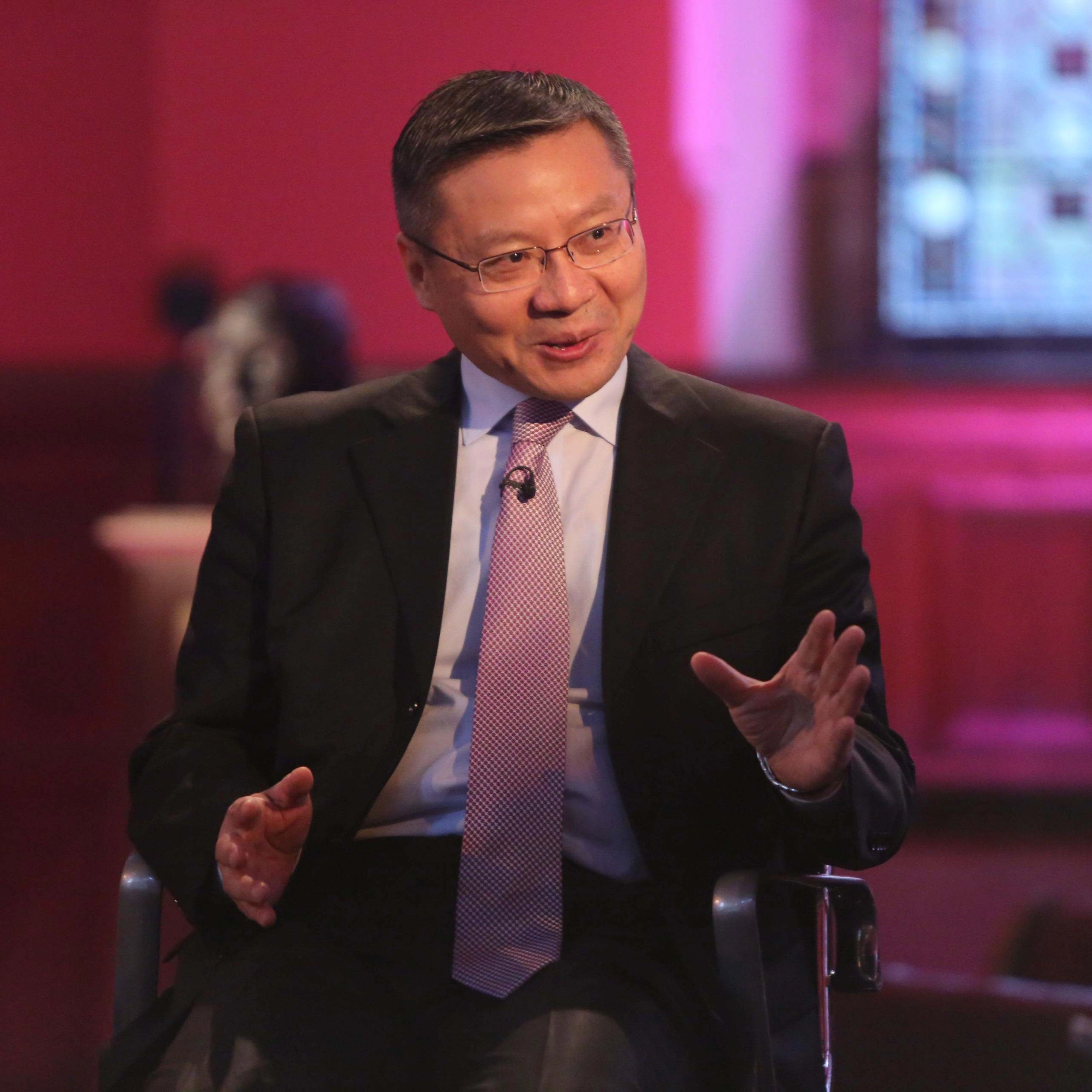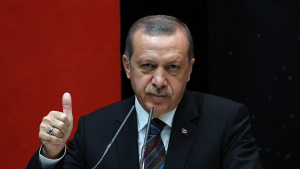The US Dollar Can No Longer Threaten China and Russia

From October 22 to 24, the 2024 BRICS summit took place in Russia, generating significant attention among the Chinese public for two key announcements. The first was President Putin’s unveiling of sample banknotes for the BRICS currency, and the second was the introduction of the BRICS Pay, a new cross-border payment system. Both developments represent significant progress in the de-dollarization movement. The BRICS Pay is especially important because it opens up the possibility for China, Russia and Global South to be completely immune to US sanctions.
First, regarding the sample banknotes of the BRICS currency, they feature the flags of the five founding countries, along with those of fourteen other member nations. The design also incorporates various languages and landmarks from each country, showcasing a commitment to cultural inclusiveness and diversity that stands in stark contrast to the U.S. dollar and the euro.

On another front, BRICS Pay, a transnational payment system established by BRICS nations, is poised to neutralize the financial sanctions leveraged by the U.S. Following the onset of the Russia-Ukraine conflict, the U.S. removed Russia from the SWIFT system, complicating trade for Russian companies and making it difficult for ordinary Russians to access their funds in European and U.S. banks. Even Swiss banks, traditionally viewed as neutral, imposed sanctions on Russia, leading to widespread outrage among the Chinese public over this perceived injustice. This indiscriminate robbery of the Russian people shocked Chinese society.
But now, BRICS Pay will make the US and EU can no longer loot other countries by simply tapping a keyboard in their offices. This shift is primarily due to two significant advancements:
First, the SWIFT system is heavily influenced by the U.S. and the EU due to systematic discrimination against the Global South within its governance structure.
The SWIFT system is overseen by a board of directors comprising 25 members elected by the most influential banks. As of May 2024, representatives from the U.S., EU, Australia, and Canada hold 21 of these 25 seats. In contrast, only China, South Africa, Japan, and Singapore collectively share 4 seats for Asian and African countries, while South American nations have no representation at all. This raises a critical question: how can the financial interests of the Global South be adequately represented in such an imbalanced voting system?

In contrast, the BRICS Pay system employs a decentralized Cross-border message system (DCMS) developed by Russia’s Saint Petersburg State University. This system operates without a central owner or hub, allowing all participants to manage their own nodes.
In this decentralized framework, no country can impose its will on another’s node, regardless of differences in size or military power. Furthermore, BRICS Pay enables member countries to conduct cross-border payments in their own currencies, mitigating the effects of foreign exchange fluctuations on trade. The era when a single nation could dominate the global economy merely by printing money is coming to an end.
Secondly, the SWIFT system enjoys widespread global use because it effectively encompasses the world’s most significant economies, making it challenging for countries reliant on exporting raw materials or products to detach from it. However, BRICS Pay also includes several important economies and holds distinct advantages over the SWIFT system in various key areas.

As of 2024, BRICS countries control 52% of the world’s natural gas reserves, 42% of global oil reserves, and 53% of food production. Moreover, based on purchasing power parity calculations, the BRICS organization accounts for approximately 35.4% of global GDP, which surpasses the G7 group’s share of 29.6%. Additionally, BRICS nations represent 45% of the global population.
These statistics indicate that if Europe and the United States were to impose sanctions on BRICS Pay, it would effectively mean isolating itself with half of the world’s population and resources. Conversely, BRICS countries possess sufficient energy resources to power their production, ample food to sustain their populations, and a robust consumer base to support their markets.
For the Global South, the end of dollar hegemony appears to be on the horizon. The primary concern for the Chinese public at this moment seems to be the relationship between China and India, particularly regarding border tensions.
However, during the 2024 BRICS summit, China and India reached an agreement on arrangements for checkpoints and patrols. On India’s state TV broadcaster, Doordarshan, Prime Minister Modi stated, “We welcome the agreement on the issues that have come up over the last four years,” It should be our priority to maintain peace and tranquillity on the border. Mutual trust, mutual respect and mutual sensitivity should be the basis of our relationship,”
Clearly, if India can prioritize its long-term interests and work together with China for a more prosperous future for all Indian citizens, BRICS Pay will become an unstoppable force.
In addition, on October 25, during the latest World Economic Outlook presentation by the International Monetary Fund (IMF), Liao Min, China’s vice minister of finance, expressed confidence that China would achieve its economic growth target of around 5% for 2025.
This figure is significant for the global economy, as it indicates that China’s target will nearly double America’s.
According to Business Insider, the IMF predicts the US GDP growth will slow to 2.2% in 2025, as government spending decreases and the labor market cools, leading to reduced consumption. However, for global growth, the IMF estimates that is projected to be 3.2% in 2025. This means that the United States is holding the world back.
According to Reuters, the IMF also projected that Germany would see zero growth this year, a downgrade of two-tenths of a percentage point, due to ongoing struggles in its manufacturing sector. Meanwhile, Japan’s growth forecast has been lowered by four-tenths of a percentage point to 0.3%, reflecting the lingering effects of supply disruptions.
It looks like the G7 can no longer power global growth in 2025. But the good news is that there are other BRICS countries that share this responsibility with China. The IMF upgraded Brazil’s growth forecast by 0.9%, citing stronger consumption and investment, while India’s projected growth rate was revised upward by 0.5% compared to 2024.
This time, after China, Brazil, and India achieve greater wealth, the U.S. and Europe will find it difficult to impose sanctions as they have in the past. Remember, BRICS Pay is watching.
EU foreign policy chief Mr. Borrell admitted not long ago that almost everyone in the non-Western world thinks now that there are credible alternatives to the West, not only economically, but also technologically, militarily, and ideologically, and with immense material weight, or hard power, and enormous intellectual power, or soft power, on the part of the world majority.
Just as Chinese Scholar, Prof. Zhang Weiwei once commented, Russia was isolated by the West, but the West is isolated by the rest. With BRICS rising, “a multipolar world order has become an irresistible trend in history. “
https://www.reuters.com/markets/us/imf-lifts-us-growth-forecast-marks-down-china-sees-lackluster-global-economy-2024-10-22/
https://www.businessinsider.com/imf-us-economy-growth-outlook-forecast-china-gdp-ai-microchips-2024-10
https://www.swift.com/about-us/organisation-governance/swift-board-directors
https://www.facebook.com/photo.php?fbid=907968458040611&id=100064823943405&set=a.222830736554390



-1-300x169.jpg)
